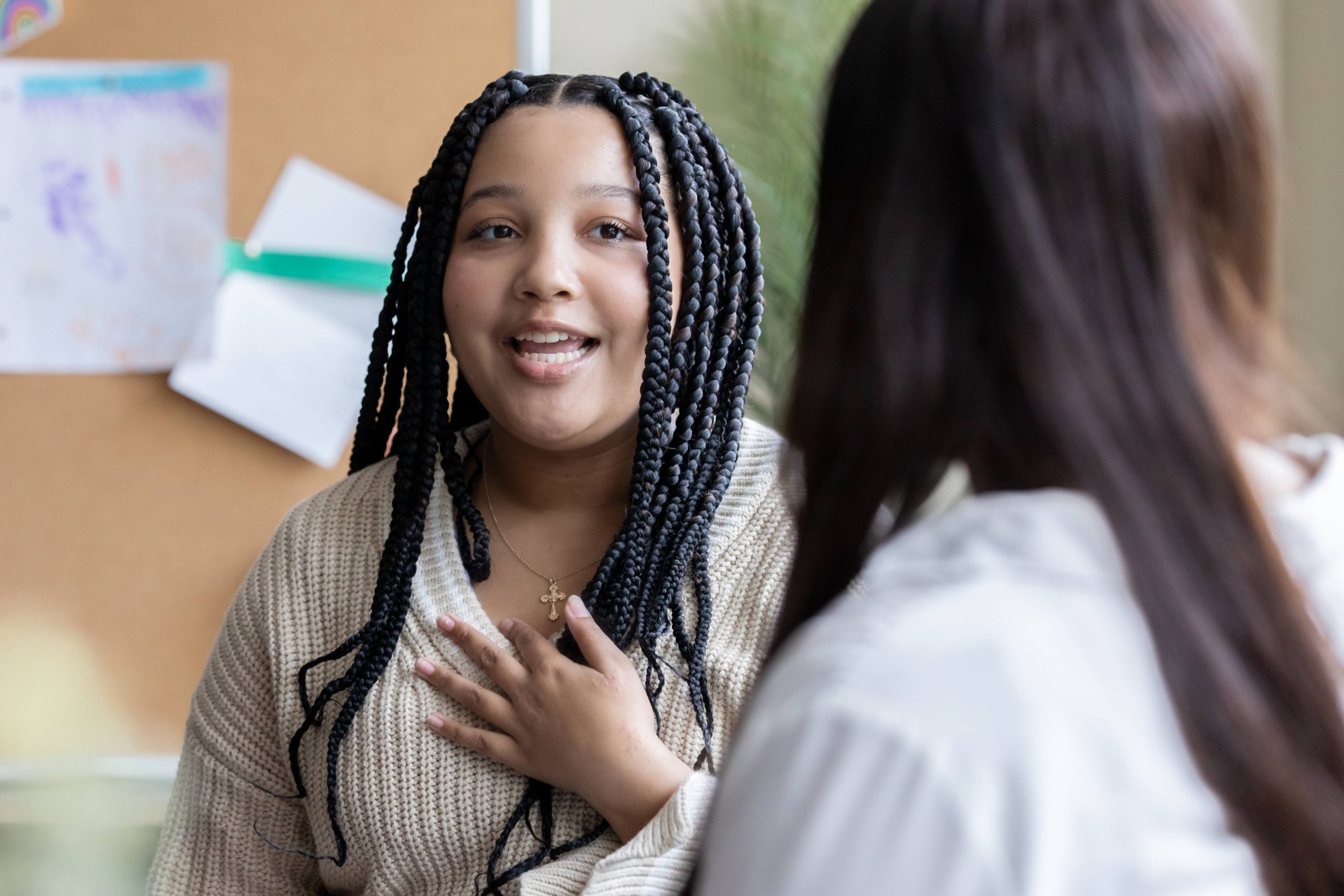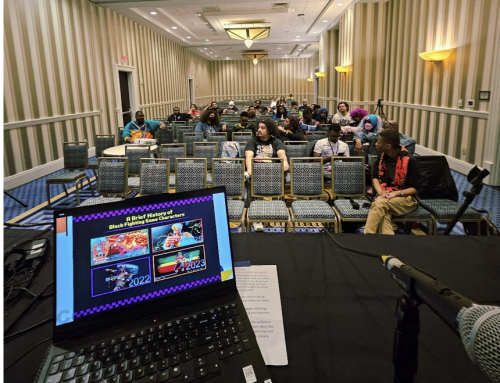Since 1949, the month of May has been recognized as Mental Health Awareness Month in the United States (U.S.). Typically, we witness an array of community, agency, and school events focused on topics such as the signs and symptoms of mental health disorders, ways to practice good emotional wellness, accessing mental health resources, and other topics aimed at promoting a greater understanding around mental health.
As we embark on this month of awareness-raising and education, it is imperative that we not omit from the discourse the social and emotional well-being of our nation’s children. Of crucial importance is the state of our most vulnerable, racially minoritized youth who often face numerous complex sociocultural stressors like systemic racism, structural poverty, and other adverse childhood experiences. Never have we, as a nation, been forced to grapple with such a severe youth mental health crisis than the one that exists today.
In recent years, multiple national organizations, such as the Congressional Black Caucus and the Substance Abuse and Mental Health Services Administration (SAMHSA), have sounded the alarm on the urgency surrounding the mental health needs of Black children, in particular. According to a report published by the Centers for Disease Control and Prevention, suicide is the second leading cause of death among adolescents between 10 and 14, and the third leading cause of death among individuals between the ages of 15 and 24 (NIMH, n.d.). For Black youth, the data are even more dire. “The suicide rate among Black adolescents is increasing faster than other racial and ethnic groups. From 2007 to 2020, the suicide rate rose 144% among 10- to 17-year-olds who are Black” (Akkas & Corr, 2024). This racial disparity has led policymakers, researchers, and advocates to pose difficult, yet necessary, questions about the psychological well-being of Black youth and what can be done to mitigate risk and increase protection. Schools and educators are a critical piece of the puzzle in this national conversation.
Most school districts across the country utilize some framework of a multi-tiered system of supports (MTSS) that is designed to assist students in experiencing optimal academic and social-emotional outcomes. The MTSS framework provides those students who have learning, social, emotional, or behavioral challenges with the individualized instruction and/or support they need to make adequate progress. Many districts also use MTSS as an approach to provide mental health support to students (Pendharkar, 2023). Betters-Bubon and colleagues (2019) posited that while the implementation of MTSS can positively impact the success of students, infusing culturally responsive approaches into these frameworks can help to foster more effective and equitable school environments. Culturally responsive MTSS involves acknowledging the ways in which racism and racist encounters negatively impact the psychological health of Black and other racially minoritized students. It also includes leaders and teachers approaching student needs from a trauma-informed lens, and acknowledging that symptoms of trauma can, at times, manifest as seemingly behavioral, emotional, and/or academic difficulties. Recognizing that a student is struggling and intervening early with appropriately trained professionals who can provide them with emotional support could be the act that alters a student’s trajectory.
All too often, the mental health needs of Black and other students of color go unrecognized, and in worst case scenarios they are written off as “disruptive,” “resistant” or “combative.” Our children need fewer labels and more culturally responsive and contextually relevant support mechanisms that allow them to feel seen, heard, and cared for. The unfortunate reality is that Black youth today are forced to navigate a multitude of factors that have the potential to negatively affect their mental health, but with the appropriate supports in place, they can, in fact, be more than alright! Our youth can thrive and lead lives full of the love, joy, and freedom that they so rightfully deserve.
References
Akkas, F. & Corr, A. (2024). Black adolescent suicide rate reveals urgent need to address mental health care barriers. https://www.pewtrusts.org/en/research-and-analysis/articles/2024/04/22/black-adolescent-suicide-rate-reveals-urgent-need-to-address-mental-health-care-barriers
Betters-Bubon, J., Kortemeier, H., & Smith-Durkin, S. (2019). Culturally responsive MTSS: Advocating for equity for every student. In E. Goodman-Scott, J. Betters-Bubon, & P. Donohue (Eds.), The school counselor’s guide to Multi-Tiered Systems of Support (1st ed., pp. 298–329). Routledge/Taylor & Francis Group. https://doi.org/10.4324/9781315144467-11
Centers for Disease Control and Prevention. (2022). Web‐based Injury Statistics Query and Reporting System (WISQARS): Leading causes of death reports, national and regional. https://www.nimh.nih.gov/health/statistics/suicide
Pendharkar, E. (2023). MTSS: What is a multi-tiered system of supports? https://www.edweek.org/teaching-learning/mtss-what-is-a-multi-tiered-system-of-supports/2023/10
Leslie A. Anderson
Dr. Leslie A. Anderson is an Assistant Professor of Family & Consumer Sciences and a licensed marriage and family therapist with over 10 years of clinical experience, primarily serving Black youths and families. As a faculty affiliate of The National Center for the Elimination of Educational Disparities (NCEED), she conducts research on the social and emotional learning and psychological well-being of both children and adults. Dr. Anderson earned her Ph.D. in Human Development and Family Science, with an emphasis in Marriage and Family Therapy, from the University of Georgia.
As a scholar-practitioner, Dr. Anderson's program of research focuses on the intersection of Black familial processes, race and racism, and psychological well-being. Specifically, she investigates how racial socialization and a positive racial identity act as protective factors against racial harm and injury.
Her research has been published in the Journal of Family Theory and Review, the Journal of Black
Psychology, Cultural Diversity and Ethnic Minority Psychology, the Journal of Research on Adolescence, the Journal of Social Issuesand others. Dr. Anderson also serves on the editorial boards ofthe Journal of Family Theory and Review and Family Process, and she reviews for numerous other academic journals.
A cornerstone of Dr. Anderson’s scholarship is her commitment to amplifying the voices of underserved and historically excluded communities while centering their lived experiences. She is currently part of a multi-institutional research team conducting a longitudinal project funded by the National Institute for Mental Health (NIMH) that aims to identify risk and protective factors for suicidality among young Black children in early and middle childhood.







